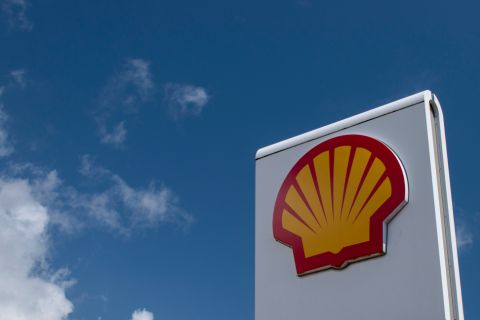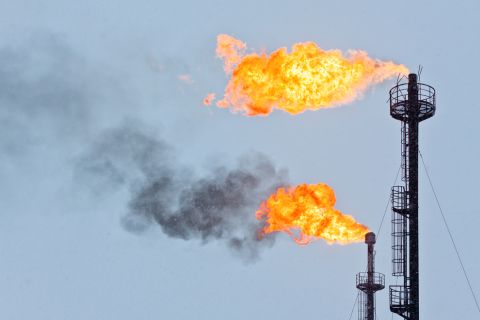U.S. Senate Democrats on May 23 urged President Donald Trump to try to prod OPEC to take steps to lower oil prices and suggested that millions of Americans will see tax cut proceeds canceled out by higher fuel costs.
Senate Democratic Leader Charles Schumer held a news conference at a Capitol Hill Exxon station to criticize Trump for not doing more to lower fuel costs and said that gasoline prices had jumped 25% since Trump took office in January 2017.
Schumer said Trump’s decision to withdraw from the multinational Iran nuclear deal was a factor in increasing gas prices. He also criticized the administration for planning to rollback fuel economy standards, not doing more to encourage the use of ethanol and for not pushing major oil producing states.
“It’s time for this president to stand up to OPEC,” Schumer said of the Organization of the Petroleum Exporting Countries.
A letter from Schumer and other Democrats urged Trump to send Energy Secretary Rick Perry to a June 22 OPEC meeting in Vienna to raise the oil prices issue.
The White House did not immediately respond to Schumer’s comments.
Senator Lisa Murkowski, a Republican who chairs the Energy Committee, said she agreed “OPEC’s supply restrictions are driving prices higher and should be addressed, but I was stunned to hear my colleagues encouraging more production from the likes of Iran and Saudi Arabia, rather than right here in America.”
Recommended Reading
Shell’s CEO Sawan Says Confidence in US LNG is Slipping
2024-02-05 - Issues related to Venture Global LNG’s contract commitments and U.S. President Joe Biden’s recent decision to pause approvals of new U.S. liquefaction plants have raised questions about the reliability of the American LNG sector, according to Shell CEO Wael Sawan.
BP Pursues ‘25-by-‘25’ Target to Amp Up LNG Production
2024-02-15 - BP wants to boost its LNG portfolio to 25 mtpa by 2025 under a plan dubbed “25-by-25,” upping its portfolio by 9% compared to 2023, CEO Murray Auchincloss said during the company’s webcast with analysts.
President: Financial Debt for Mexico's Pemex Totaled $106.8B End of 2023
2024-02-21 - President Andres Manuel Lopez Obrador revealed the debt data in a chart from a presentation on Pemex at a government press conference.
Some Payne, But Mostly Gain for H&P in Q4 2023
2024-01-31 - Helmerich & Payne’s revenue grew internationally and in North America but declined in the Gulf of Mexico compared to the previous quarter.
Green Swan Seeks US Financing for Global Decarbonization Projects
2024-02-21 - Green Swan, an investment platform seeking to provide capital to countries signed on to the Paris Agreement, is courting U.S. investors to fund decarbonization projects in countries including Iran and Venezuela, its executives told Hart Energy.




